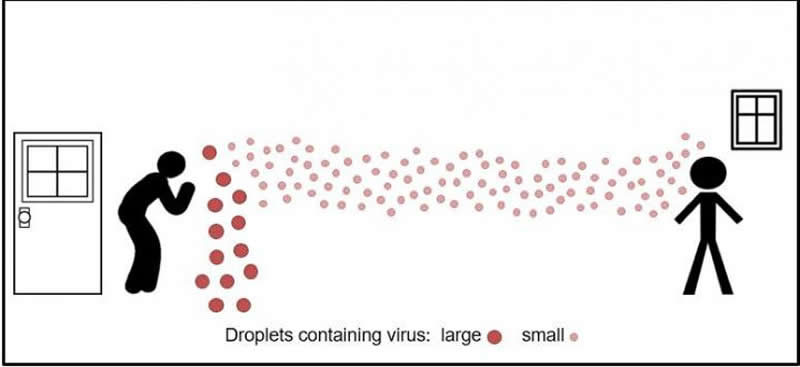Whether the coronavirus (COVID-19) is transmitted through respiratory droplets or airborne, there would not be a huge difference in the preventive strategy, said Health Minister Dechen Wangmo.
Earlier this week, the World Health Organization (WHO) stated that the COVID-19 could be airborne indoors and could spread from one person to another after more than 200 scientists urged to address it.
However, WHO had not declared COVID-19 airborne as of yesterday.
According to WHO, the respiratory infections can be transmitted through droplets of different sizes, when the droplet particles more than 5-10µm in diameter, that are larger droplets they are referred to as respiratory droplets, and when are less than 5µm in diameter, they are referred to as droplet nuclei.
Additionally, droplet transmission occurs when a person is in close contact that is within 1m with someone who has respiratory symptoms like coughing or sneezing.
On the other hand, airborne transmission refers to the presence of microbes within the droplets nuclei and can remain in the air for long periods of time and can be transmitted to others over distances greater than 1m.
“There is no different strategy as of now and WHO has not come up with any recommendations, “said Lyonpo.
She also said the health ministry is pretty much sure that the WHO would come up with the recommendations already in practice on wearing facemasks, hand washing, and cough etiquettes that are important preventive measures for any respiratory diseases. However, Lyonpo said certain measures might change.
Moreover, she said the there are growing number of literatures that it could possibly be transmitted through air, however, the impact on the individual and preventive measures would remain fairly same.
Additionally, Lyonpo said that more than the airborne aspects, we should be worried about the uncertainty of the COVID-19 since scientific community across the world are still not sure about the source of the virus, its genetics and treatment.
Lyonpo also said although there are about 17 vaccines in testing for the virus, they are not sure when, how and in what manner they would come.
Moreover, she said it is uncertain how long the COVID-19 would stay in air if the virus is airborne and how the COVID-19’s behavior is different from other viruses in coronaviruses family.
”Every scientist in the world has agreed to following preventive measures like avoiding crowds, wearing facemasks, cough etiquettes, and physical distancing since they are proven science to prevent any respiratory diseases including COVDI-19, “ said Lyonpo Dechen Wangmo.
Lyonpo said that community transmission is inevitable in the future and ministry always recommends adhering to the preventive measures not waiting for scientific results.
However, she said that wearing facemasks is mandatory in certain high risk places. But if it were made mandatory to wear in every place, there would be problem to the law enforcers and to the public.
“Rather than considering it otherwise, people should take it as civic responsibility,” said Lyonpo.
Thukten Zangpo from Thimphu













